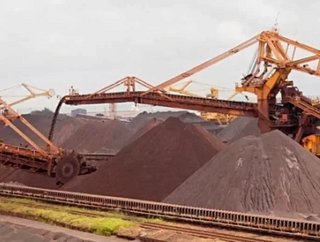Vale won't sell iron ore ships

It’s hard to get any executive to swallow a loss and move on.
That’s what Vale, the world’s largest iron ore producer, is finding out, as the company says it won’t “carry a loss” from the potential sale of its shipping fleet to its competitors.
The Brazilian-based mining company may be forced to sell back or lease 18 very large ore carriers, which are now valued at $87.3 million by VesselsValue.com. Vale paid $133 million for 12 of the ships that are being constructed in China. Six more ships are being built in South Korea at a cost of $115 million each, according to Clarkson Plc, the world’s largest shipbroker.
Each ship can carry about 400,000 metric tons of cargo.
“We have no intention to carry a loss on an eventual sale,” Vale said in an email statement. “This is a financial and commercial decision.”
Vale began purchasing its own ships in 2008 in an attempt to control its freight costs to keep its iron ore prices down to better compete with mining companies in Australia, who ship most of their product to China, a country that uses the most steel in the world.
Chinese ship owners themselves are pushing to get their government to halt Vale from moving its own iron ore on its own vessels, because the company would then control the market, according to the China Shipowners Association.
SEE OTHER TOP OCEAN FREIGHT STORIES ON THE SUPPLY CHAIN DIGITAL CONTENT NETWORK
Top Container Shipping Lines in the World
COSCO hurt by global shipping slip
Check out the latest issue of Supply Chain Digital!
Still, it seems like selling the very large iron ore carriers might be a smart move for Vale.
“Selling the vessels might be quite a neat solution,” Nigel Prentis, a London-based analyst at HSBC Shipping Services told Bloomberg. “Vale might have met a blockage in China and they can undo it, selling the ships so they are under Chinese control.”
While a decline in the value of the vessels would hurt Vale in any type of sale, the deal would allow the buyer to set lower freight rates when it leases the ships back to Vale, which could help the company recoup its loss from selling the ships at a lower market value.






